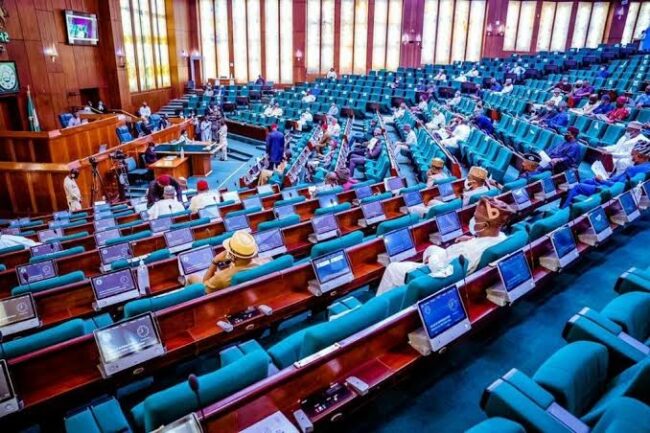The House of Representatives unveiled plans on Thursday for the review of the N28.777 trillion Appropriation Act signed into law by President Bola Ahmed Tinubu for the 2024 fiscal year.
The resolution was passed as a sequel to the adoption of a motion under ‘Matters of Urgent Public Importance’ sponsored by Hon. Kafilat Ogbara.
In her lead debate, Hon. Ogbara underscored the urgent need to evaluate the implications of the current exchange rate for the 2024 budget implementation, with a view to ensuring a balanced budget and comfortable living for Nigerians.
Hon. Ogbara argued that the change in exchange rates, rise in interest rates, and inflation have caused the resultant hardship for Nigerians.
She also expressed worry over the impact of the foreign exchange volatility on the Nigerian economy, which is heavily import-dependent.
She therefore called on the National Assembly to review the Medium Term Expenditure Framework (MTEF), Fiscal Strategy Paper (FSP), External Borrowing Plan, and all other such parameters to ensure conformity with the realities of the times.
The breakdown of the N28.777 trillion approved budget signed into law by President Bola Ahmed Tinubu showed that the sum of N1.743 trillion was for statutory transfers; N8.271 trillion was for debt service; N8.769 trillion was for recurrent (non-debt) expenditure; and N9.995 trillion was for capital expenditure for the year ending December 31, 2024.
The N9.179 trillion fiscal deficit for the year under review was to be financed through asset sales and privatisation (N298,486,421,740); multilateral and bilateral projects (N7,828,529,477,860.
For the total debt service of N8.271 trillion approved for the year 2024, the sum of N5.300 trillion was to be incurred through domestic debts, including ways and means; N2.748 trillion through foreign debts; and the sinking fund for the retirement of maturing promissory notes stands at N223.662 billion.
Hon. Kafilat also called on the joint Committee on Appropriation, Finance, and other relevant Committees of the House to work with the Federal Government’s Ministries, Departments, and Agencies (MDAs) to review the outlined spending plans, overview financial functions, ensure the protection of the Nigerian economy through the application of realistic policies, and report back to the House within six weeks.
While ruling on the motion, the Deputy Speaker, Hon. Benjamin Kalu, referred it to the House Committee on National Planning and Economic Development, Appropriations, and Finance for further legislative action.
